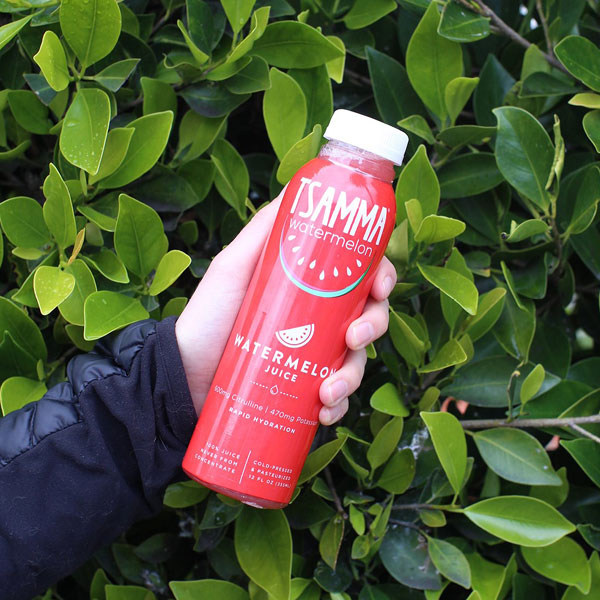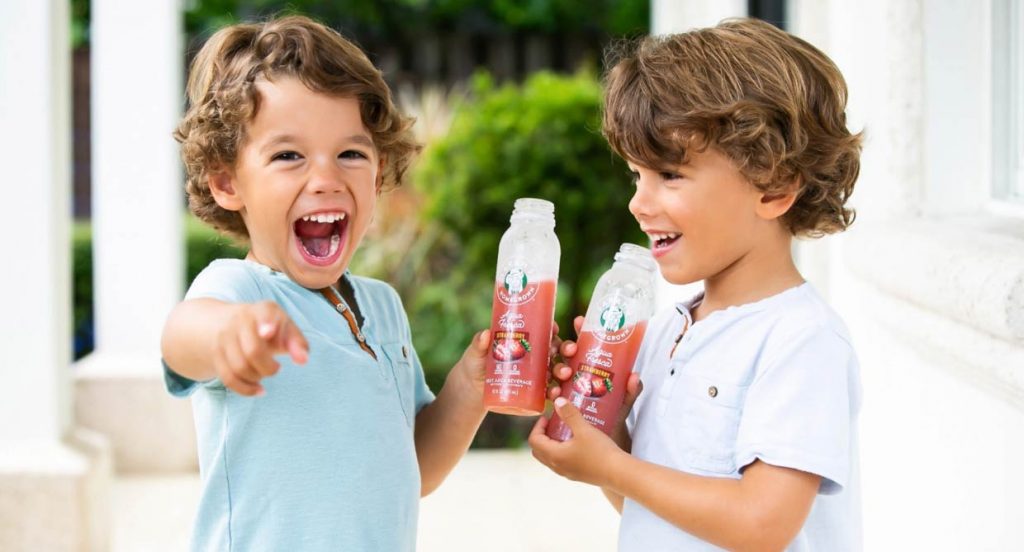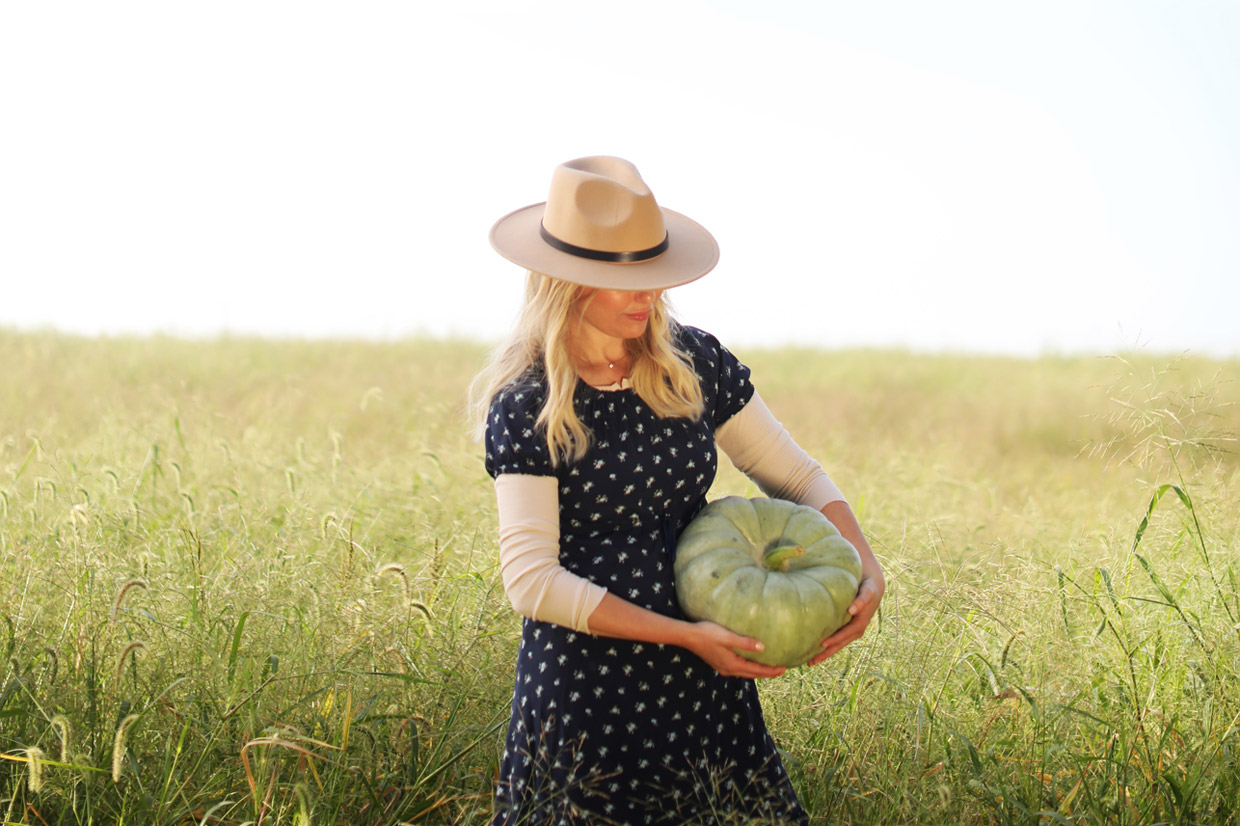
AMERICA’S PUMPKIN QUEEN, PLANTING THE SEEDS FOR A BRIGHTER TOMORROW…
“If someone had made a comment or hurt my feelings I would never let them have ownership over how it made me feel, I just never gave anyone that kind of power over me.’”
Sarah Frey is the youngest of 21 siblings. Her parents were each married previously. All her childhood memories are of her four older brothers on their small farm, 80 acres in Southern Illinois.
As a small child Sarah thought they were so rich, because their experiences were full of adventure. The food was fresh; they would literally pull things out of the ground minutes before they would prepare the dinner. Sarah and her brothers would go hunting and come home with rabbit and quail, or they would kill a deer and process all the meat. Life was dangerous and exciting. She had no idea they were living on the poverty line.
Looking back she recognises just how brutal her childhood was. Many days it was just about survival.
“It was survival to stay warm in the winter, survival to put food on the table, survival to make sure that you didn’t lose your life in an accident. We were all very small children operating heavy equipment and doing things that most adults today wouldn’t venture to do,” explains Sarah.
But ultimately, it’s Sarah’s extreme experiences growing up that shaped the successful business person of today.
OVERCOMING FEAR
Sarah learnt from a very young age how to overcome fear. Every time she faced something that was very difficult she had no choice but to push through, and eventually she began to get a high from the feeling of overcoming the challenge. It became addictive.
“I remember my brother and I were just little kids and we were sent out to shoot a deer. To us we were harvesting our food, we were living out in the middle of nowhere, and we did what we needed to do. We found our target and shot it as instructed but when we went to claim it, it wasn’t dead. We had to kill that animal and put it out of its misery. It was gruesome and terrifying. We had an adult telling us ‘you don’t get to shoot the deer a second time, here’s a hammer, you have to finish the job’. It was a buck with huge antlers, and it was flailing around in pain. My brother Ted and I were there faced with this animal that was fighting for its own survival, wanting to kill us, and we were little kids standing there in the moonlight scared to death. We didn’t have a choice but to end that deer’s life with our hammer.”
This is just one of hundreds of experiences that taught Sarah how to manage fear and develop grit. Skills that have been transformative for Sarah in leading the way for the Frey Farm enterprise into the future.
FARM KIDS WORK HARD
Sarah tells me that farm kids generally do things earlier than most children, and they are going to learn hard lessons young. But on Frey Farm it was more extreme because they were doing things in such antiquated ways. The equipment was old and broken down. They were constantly working on old or broken machinery, trying to get it up and running again, and they were literally living off the land.
“I remember my first trip to a grocery store and standing there in complete amazement… looking at all the packaging and the colors and the branding on the chips, on the bread, on the boxes of cookies. Little did I know back then that the way we were actually eating, was so much healthier and so much better than anything we could have bought in the inner aisles of a grocery store,” shares Sarah.
DREAMING OF A DIFFERENT LIFE
The first time Sarah realised that her family was poor, they were visiting a friend’s place near St Louis, Missouri. They had a thermostat on the wall, and to Sarah it was like a magic box. This little thing that makes the heat just appear. Sarah thought ‘why can’t we have one of those?’
As Sarah grew up she began to realise the reality of their circumstances. And she dreamt of escaping the farm to a different life.
“When I was a little girl I would sometimes get in the truck and drive down Michigan Avenue in downtown Chicago with my father. I remember being in awe of the city and seeing sophisticated women for the first time in my life. Women dressed up in career clothes and I remember thinking… ‘Wow, look at those really interesting shoes, she’s carrying a briefcase, she has on a suit jacket.’ And, ‘oh she’s lovely.’”
A light switch flipped in Sarah’s mind and she thought ‘I’m a girl, I can do that. I can wear that dress, that coat, I can carry that bag or wear those shoes.’
Sarah began to idealise that lifestyle. In her mind when she thought about getting out and escaping rural poverty, that Chicago woman was what she saw.
Ironically Sarah didn’t ever action her escape plan, she chose to stay on the farm. A decision that has changed the life for everyone of her family members, and for the future generations to come.
“This place that I’d been planning to escape my whole entire life is now my escape from the craziness of the world, when I am back here I feel grounded,” smiles Sarah.
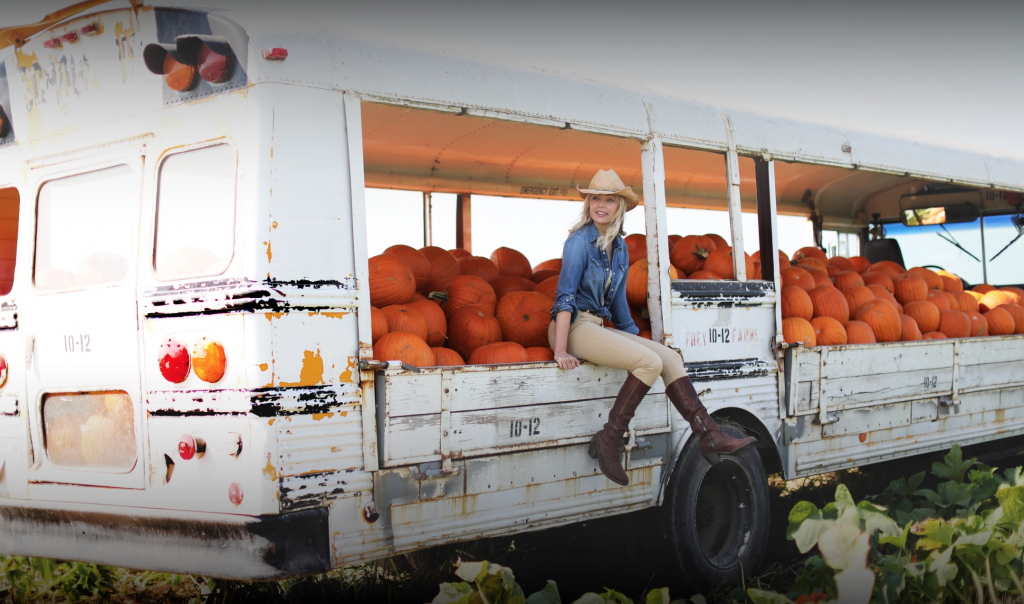
STARTING HER ENTERPRISE AT AGE 15
When Sarah was 15, her mum started working for a radio station, so Sarah took the farm truck and took over the delivery route. She quickly expanded it from 12 to about 150 grocery stores. She started to go further afield, pulling a trailer behind and hauling more fruit and vegetables. With the extra money earned, she bought herself a better truck. Her summers were spent on the road in a hot pick up truck. It was definitely not a glamorous life. But it was a good life, and Sarah was enjoying the work. She loved getting off the farm. She felt a sense of freedom every time she would drive in that old rickety truck.
Sarah loved the people she would see. She loved making sales, doing deals and negotiating. She felt like she was taking control of her own life. And she was good at it. She understood how to get goods from A to B. She understood how to work with perishable food. She understood the farm, and the grocery retail side of it.
And she began to plan ahead.
“I saved all my money. I was too cheap to get a hotel room. When I was out on the road and tired I wouldn’t spend $50 on a hotel room to sleep in, I would actually sleep in my truck. Not because I couldn’t afford the hotel room but because spending $50 on a hotel room in the summer was $50 I knew that I wouldn’t have in my pocket in the winter.”
At age 17 Sarah took over the family farm.
She made the decision to do it in a split second. She didn’t plan it, it was just a feeling that came over her. In literally three minutes her whole world changed.
“The moment happened when I was walking the last horse off the farm. We had horses growing up, and the farm was deteriorating so rapidly that the horses had to go. It had been mismanaged for many years. My brothers went away to school and they were all off to college. So, there wasn’t a way for any of us to make a living here on this farm. In the moment when I had the responsibility of getting rid of everything that was left on the farm I had an epiphany. I thought what happens when my siblings and I are in our 40s, none of us will have a place to come back to,” Sarah recalls.
And it was the vision of that, not having an anchor and a place that would bring Sarah and her brothers back together that drove her decision.
Nobody understood her decision, Sarah didn’t understand it herself. She had been planning her escape for years. It was this pure love of family and a spiritual moment. That’s the only way she can describe it.
FROM FARM HAND TO FARM ENTREPRENEUR
Sarah knew she had to do everything differently. She had to think outside the box to make this small farm work. She had spent two years driving an old truck filled with melons down the road, so she had been conditioned to not really caring what people thought of her.
She decided she was going to start growing pumpkins on the farm.
She knew the soil was conducive to growing pumpkins – it was a clay type soil so it held moisture well.
Again everyone thought she was crazy.
Sarah just thought “oh you’re going to make fun of me. Okay. Whatever.”
At that moment nobody could have envisioned just how successful this pumpkin venture was going to be. Years later the New York Times came out to the farm to do a story on Sarah. When the article came out they named Sarah ‘America’s Pumpkin Queen’, and the name stuck.
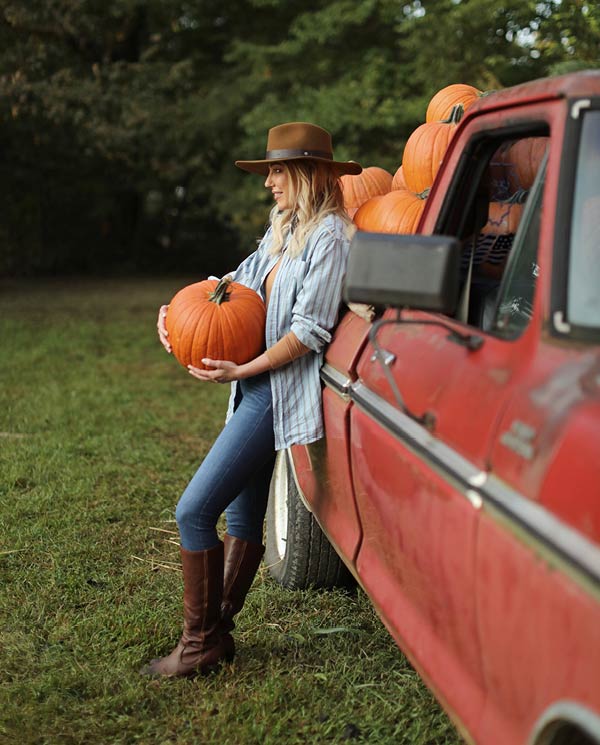
WORKING FOR THE LITTLE SISTER
As business grew, Sarah’s brothers came back to work on the farm. Some of Sarah’s brothers were more involved and others took a more passive role that has evolved over time. All of them answer to Sarah.
“They were actually used to taking direction from me because I was my father’s chief of staff. I was the communication piece between my father and the boys. I would give the directive on what needed to happen on the farm on any given day, at any given time.
“I would just march right out and go find wherever they were on the farm and say ‘Dad said he wanted the stalls on the north side of the barn cleaned first. And then you’re supposed to go take the trailer and pick up hay’ or whatever instruction it was,” recalls Sarah.
It was part of Sarah’s daily life alongside her chores.
Sarah tells me that everyone asks her that question… ‘wait, you were the youngest and then your four older brothers came back to the farm and you were leading them?’
The Frey siblings were very close growing up, they worked every single day on the farm together doing the various jobs. It was very natural. They all have different talents so it’s not like there’s an overlap of roles. There’s a lot of mutual respect.
Fortunately she has been surrounded by men who ultimately loved and supported her and lifted her up. Her brothers went to great lengths to build her confidence when she was a little girl.
So when she has encountered sexism working in such a male dominated industry Sarah has just plowed her way right through it. It was how she was raised… never allowing herself to be a victim, standing up for herself. And ultimately making corrections when corrections were necessary, but then also not spending the time or energy on something if it was going to weigh her down.
“If someone had made a comment or hurt my feelings I would never let them have ownership over how it made me feel, I just never gave anyone that kind of power over me. As soon as I would start to feel hurt I’d be like, ‘no, no, no, no, I own my power. You don’t get to do that. You don’t get to say that. I’ll be on my way now. And at some point maybe if I run into you again, I’ll explain to you how you can change to be a better human being.’ But I didn’t spend a lot of time doing that. I just spent time focused on the things that mattered to me and getting to where I want to go,” Sarah explains.
Sarah would love to see more women taking leadership roles in the farming industry. She hopes her story will inspire young rural women.
IF IT’S GOOD FOR THE LAND, IT’S GOOD FOR THE FARM
The Frey Farm is known for having sustainability as a pillar of all their decision making.
Sarah explains that sustainability and economic viability are not mutually exclusive.
“We all want good things for the land, we all want good things for the world but it has to make sense. You have to be able to stay in business.”
Decision making on the farm is centred around the thought ‘how do we use more of what we grow to waste less, and return more profits back to the farm’.
That was the inspiration for their juice brands Sarah’s Homegrown beverages and Tsamma Watermelon Juice. The Freys were looking for a way to positively use their imperfect melons that still taste great. And their juices have been a big hit. They are constantly innovating on the product side of things to ensure there is no wastage. Every ‘ugly’ fruit or vegetable has a use, from juice to ingredients. This reduces food waste, creates an added value for their customers and more profit for the farm.
“Food waste for me hits a nerve. Growing up nothing went to waste. We were either harvesting or hunting our own food. When we butchered, every piece of the animal was used. It was nothing for me to come home from school and see a hog head sitting on the kitchen table. We killed a pig one day and the next my father would get every little ounce of meat out of it,” shares Sarah.
But it’s not just about resourcefulness with the products. They have a full focus on best environmental practices when it comes to cultivation. They have hundreds of initiatives that make up different parts of their sustainability plan. Such as water usage – that’s a big thing for the Freys – they monitor water usage closely and instead of using overhead irrigation, a lot of their pumpkins rely on natural rainfall. They barely irrigate unless they have a drought. And when they do need to they use drip irrigation. So instead of spraying and using excess water the soil doesn’t need, they only apply the water to the root system where it matters.
For the future Sarah would love to help other growers implement some of those same best sustainability practices into their business to help them capitalise on every single piece of produce, while ensuring they look after the land.
What will change everything for the future is for some of the larger companies to commit to buying sustainably sourced ingredients and produce. That goes back to Sarah’s fundamental belief that economics and sustainability are not mutually exclusive. It takes everyone getting on board with the same effort and the same mission in mind and then the net result is that cost will be driven out of the food system. It’s a win, win for everyone.
THE NEXT GENERATION
Sarah’s two boys and her nieces and nephews are all starting to grow up. Sarah’s biggest challenge is now figuring out how the next generation comes into the business. Sarah can see the different personalities, their strengths, their weaknesses and her ideas are beginning to take form on what the business will look like in the future. She can see who the CFO could be, who should be in sales, who’s going to go out on the road. She knows who’s going to be on the job from 6 in the morning until 10 o’clock at night. Who’s going to stroll in at about 10 and leave around 2.
So the challenge for her is to let these kids go out into the world to have other experiences off the farm until they make the decision that they want to come back and join the business.
“What’s really hard is that I want to speed it up. So usually you want to keep your kids little forever, which I still do, but now that I’ve seen their ability to build and create I’m like ‘okay, well what do you mean you’re going back to school? Don’t you want to do e-learning from the office?’”
“They’re really quite wonderful. They are the future.”
SARAH’S ADVICE ON BUILDING A BRAND
Make your succession plan early, know what that looks like. Have the future plans agreed upon, have a clear and defined structure for roles and responsibilities. And then in addition to that, bring in people from the outside to help support the family members where they need it most. Outside influence is so important for the growth of the business.
SARAH’S LIST TO INSPIRE
Sarah Frey has just released her first book The Growing Season: How I Built a New Life – and Saved an American Farm.
“A gutsy success story” (The New York Times Book Review) about one tenacious woman’s journey to escape rural poverty and create a billion-dollar farming business — without ever leaving the land she loves.
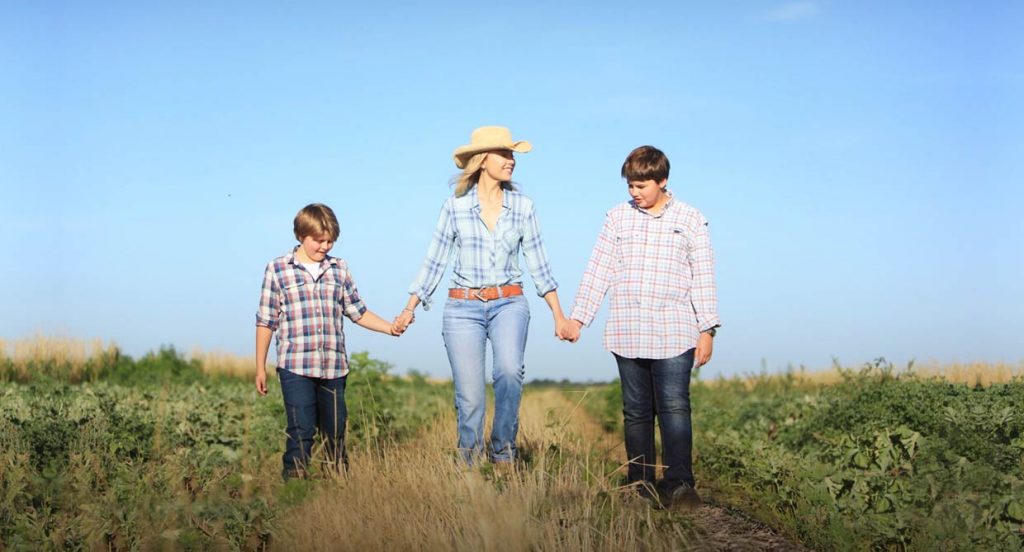
OTHER STORIES
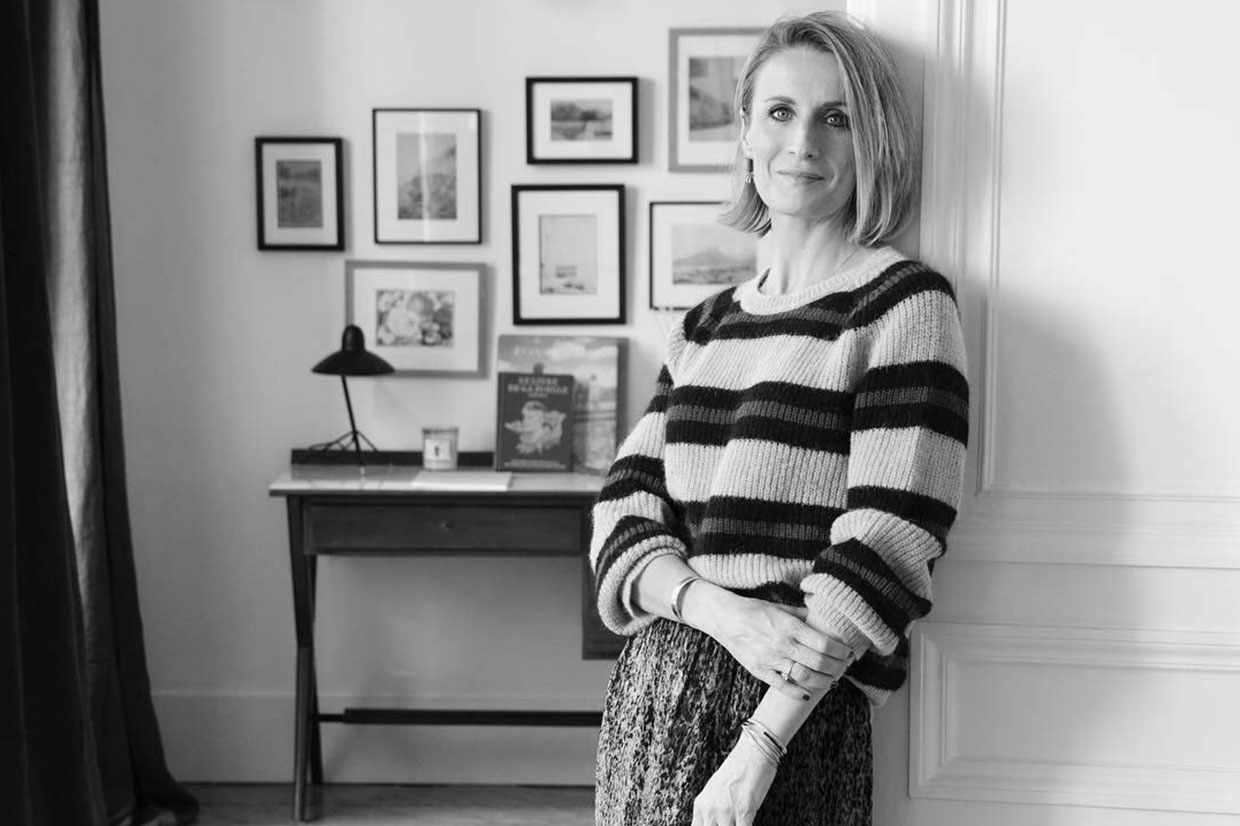
IT’S A SMALLABLE WORLD AFTER ALL…
Sustainable, ethical and beautiful brands for kids and women, handpicked from all over the world—all in one place, accessible for everybody. That’s the Smallable promise, and here’s the Smallable story…
read more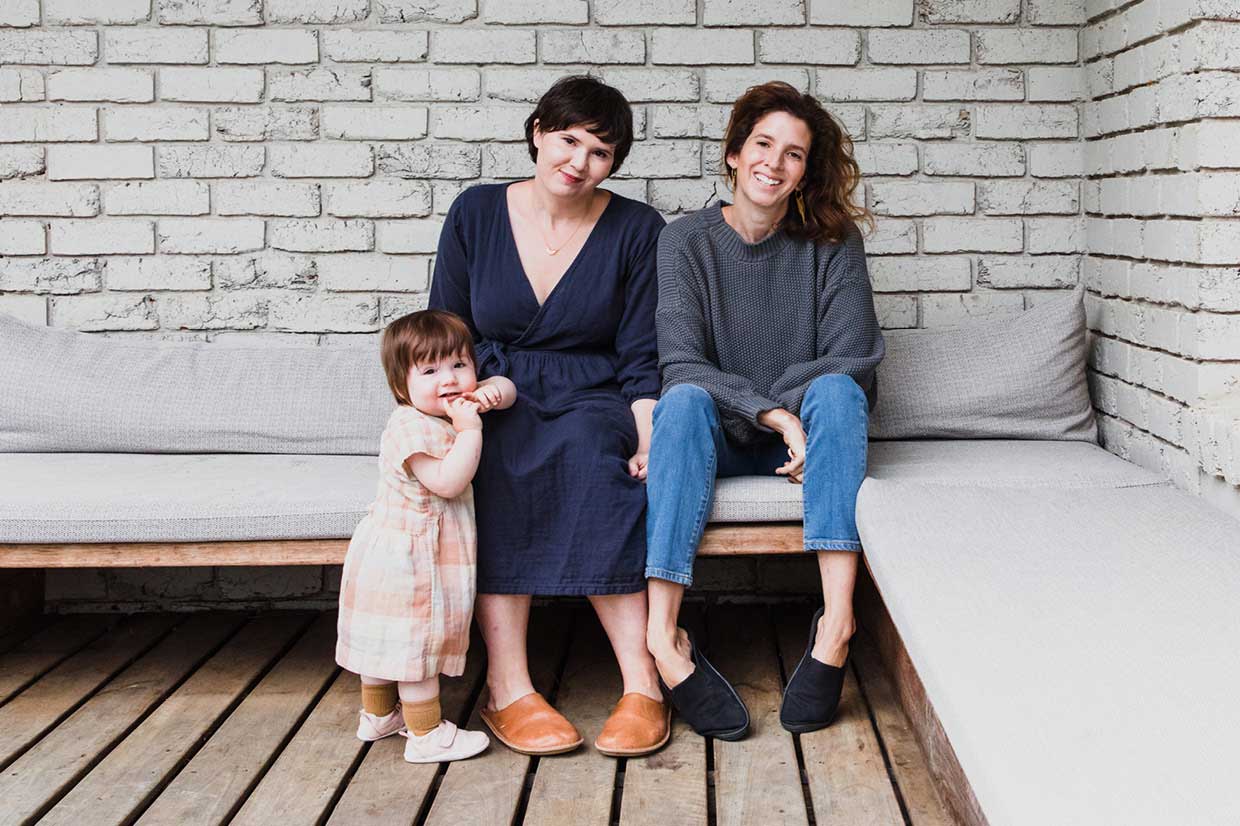
OLLI ELLA – TWO SISTERS WHO NEVER QUITE GREW OUT OF BEING KIDS
Spend time with Chloe and Olivia Brookman – the two founders of Olli Ella. These sisters combine their nomadic lifestyle, playful, carefree aesthetic and quest for functionality in their sustainably made homewares, apparel, children’s products and toy collection.
read more
